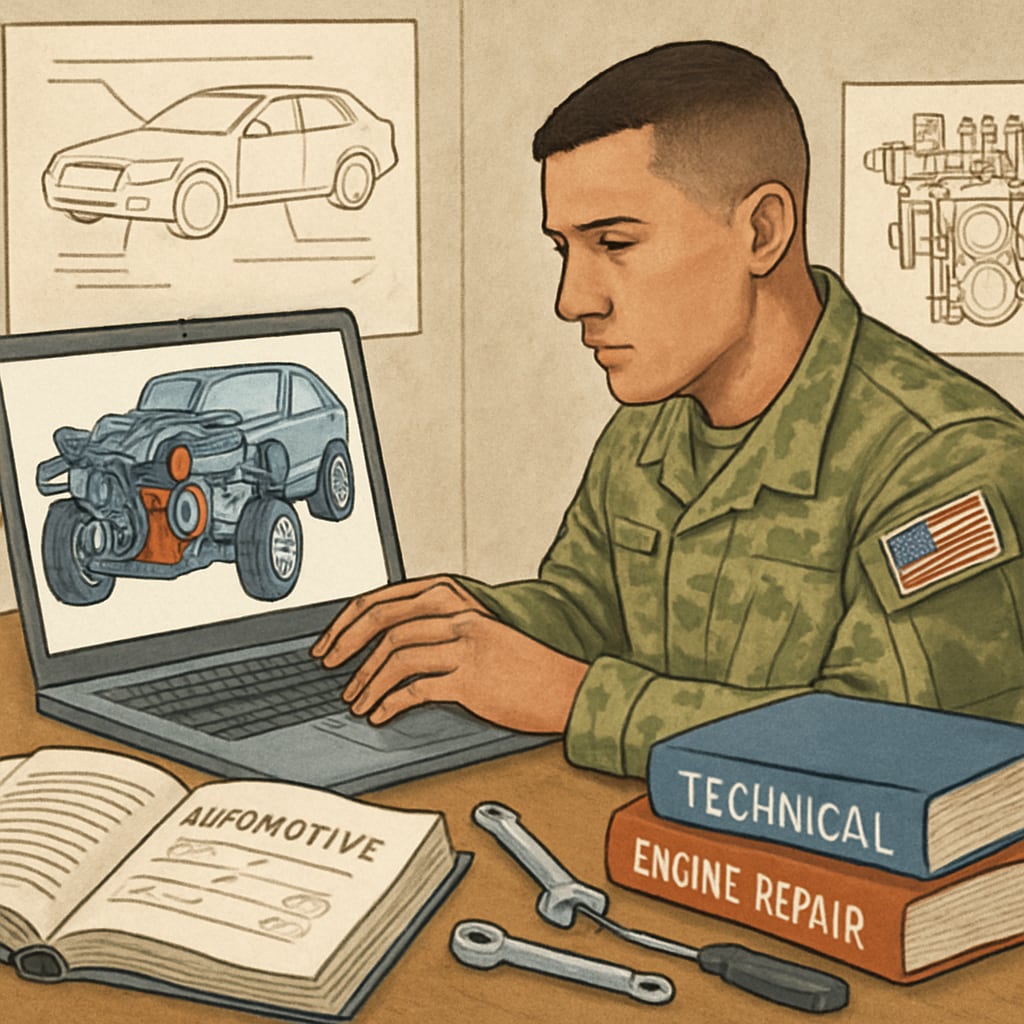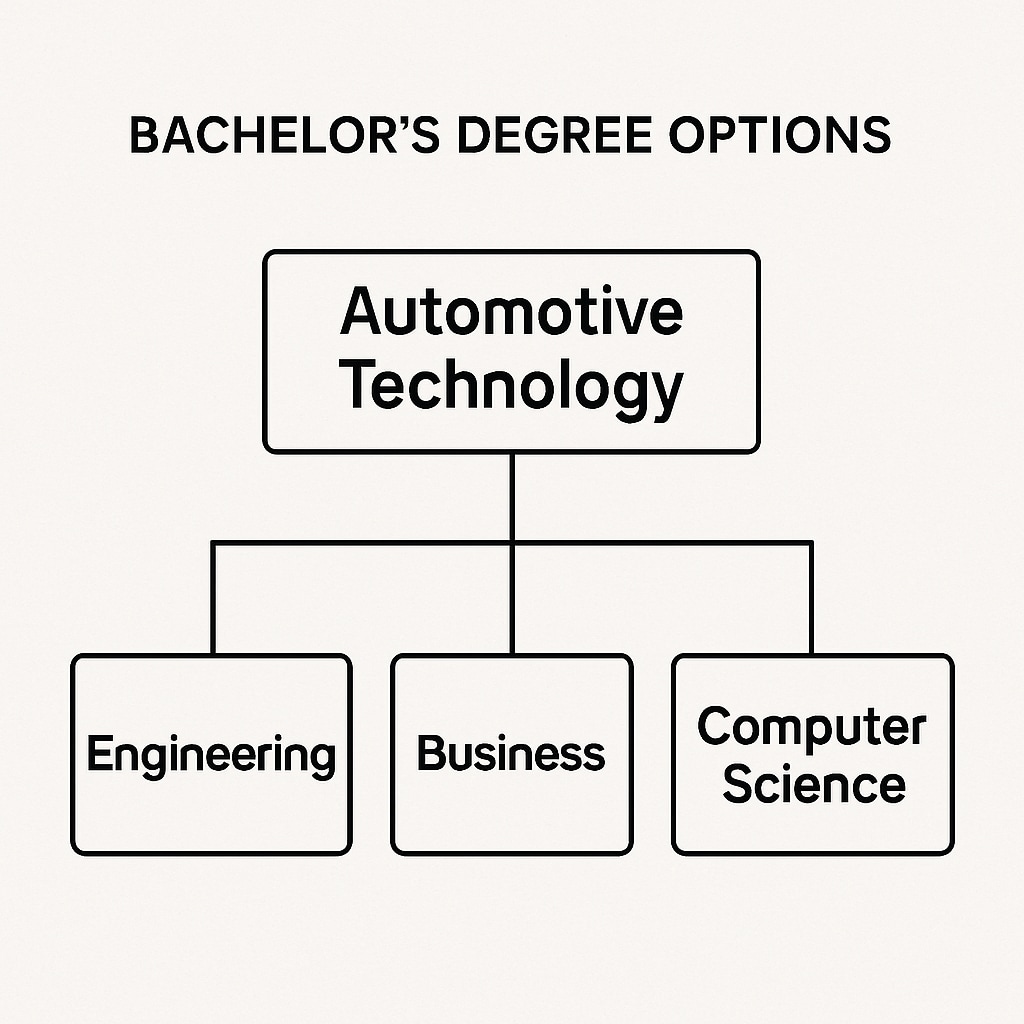Military professionals with an associate degree in automotive technology often seek to expand their skills and qualifications by pursuing a bachelor’s degree. Choosing the right academic path can enhance career opportunities while maximizing credit transfer from their existing degree. This article explores the most compatible bachelor’s degree options, key considerations for credit transfer, and how military personnel can successfully transition to higher education while leveraging their automotive expertise.
Understanding Credit Transfer for Automotive Technology Degrees
Credit transfer is an essential aspect when moving from an associate degree in automotive technology to a bachelor’s program. Many universities offer pathways that allow military professionals to apply what they’ve already learned toward higher-level courses. For example, technical courses like engine diagnostics or vehicle systems may count as elective credits or fulfill prerequisite requirements. However, understanding the policies of specific institutions is crucial, as credit transfer rules vary widely.
Military personnel should look into schools that are military-friendly and have articulation agreements with community colleges. These agreements simplify the credit transfer process and ensure that the time and effort invested in an associate degree are not wasted. Additionally, some universities offer special programs for veterans that may provide additional academic support or financial incentives.

Top Bachelor’s Degree Options for Automotive Professionals
Several bachelor’s degree fields complement the skills and knowledge gained from an associate in automotive technology. Below are some of the most practical and rewarding options:
- Automotive Engineering: This program dives deeper into vehicle design, manufacturing, and advanced technologies, making it ideal for those aiming for technical roles in the automotive industry.
- Mechanical Engineering: A broader field that covers machinery and systems beyond vehicles, offering flexibility for diverse career paths in technological industries.
- Business Administration: For professionals interested in management roles, this degree complements technical skills with knowledge in operations, finance, and leadership.
- Industrial Technology: Focused on optimizing production processes, this degree is well-suited for automotive professionals transitioning into manufacturing or logistics.
- Computer Science: With the rise of autonomous vehicles and advanced automotive software, this degree equips professionals to work on cutting-edge innovations.
Choosing the right bachelor’s program depends on individual career goals and the compatibility of the curriculum with previously earned credits from the associate degree.

How Military Experience Strengthens Academic and Career Goals
Military professionals bring unique skills to higher education, such as discipline, problem-solving, and adaptability. These qualities are highly valued in technical and leadership roles within the automotive industry. Furthermore, military benefits like the GI Bill can significantly reduce the financial burden of pursuing a bachelor’s degree.
For example, veterans with experience in logistics or vehicle maintenance are well-suited for degrees in industrial technology or business administration. Institutions often offer dedicated advisers to help military personnel navigate their academic journey, ensuring a smooth transition from military service to civilian careers.
In addition, many universities provide credit for military training, which can further reduce the time required to complete a bachelor’s degree. By combining their automotive skills with higher education, military professionals can position themselves as competitive candidates in the job market.
Steps to Successfully Transition to a Bachelor’s Degree
Transitioning from an associate degree to a bachelor’s program requires careful planning. Below are some steps to ensure success:
- Research universities with strong credit transfer policies and military-friendly programs.
- Define career goals and choose a degree that aligns with those objectives.
- Consult academic advisers to map out a clear pathway, including any prerequisite courses needed.
- Utilize military benefits, scholarships, and grants to fund education.
- Leverage online learning options for flexibility, especially for active-duty personnel.
Taking these steps ensures a streamlined transition and maximizes the benefits of pursuing higher education.
Readability guidance: Use concise paragraphs and simple language to enhance clarity. Incorporate lists for better organization and ensure a balance of technical and general content to cater to a diverse audience.


